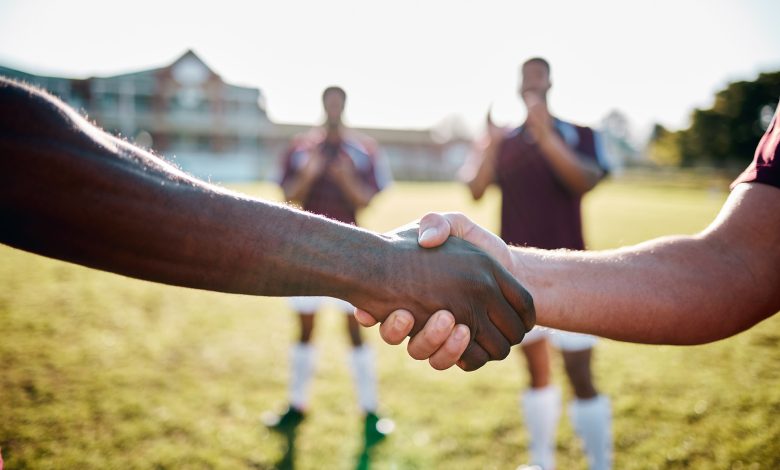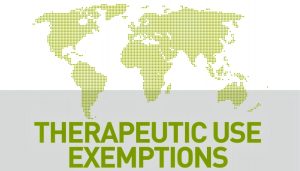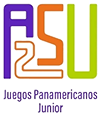ATHLETES RIGHTS & RESPONSIBILITIES

Rights and Responsibilities
Athletes, Athlete Support Personnel, and other groups who are subject to anti-doping rules all have rights and responsibilities under the World Anti-Doping Code. Part Three of the Code outlines these for each stakeholder in the anti-doping system
It is extremely important that athletes and Athlete Support Personnel know and understand Code Art. 21 (Additional Roles and Responsibilities of Athletes and Other Persons), particularly Art. 21.1 (Roles and Responsibilities of Athletes), Art. 21.2 (Roles and Responsibilities of Athlete Support Personnel) and Art. 21.3 (Roles and Responsibilities of Other Persons Subject to the Code).
Athletes’ Rights
The Athletes’ Anti-Doping Rights Act sets out the rights and responsibilities for all athletes. Ensuring that athletes are aware of their rights and that they are respected is vital to the success of clean sport. Athlete rights exist throughout the Code and International. They include:
- Equality of opportunity
- Equitable and Fair Testing programs
- Medical treatment and protection of health rights
- Right to justice
- Right to accountability
- Whistle-blower rights
- Right to education
- Right to data protection
- Rights to compensation
- Protected Persons’ Rights
- Rights during a Sample Collection Session
- Right to B sample analysis
- Other rights and freedoms not affected
- Application and standing
Click here for the Athletes’ Anti-Doping Rights Act
Athletes’ Responsibility
It is equally important that athletes are aware of their anti-doping responsibilities. Athlete Support Personnel should also familiarize themselves with these in order to be able to support their athletes. These include:
- Taking full responsibility for what you ingest – make sure that no prohibited substance enters your body and that no prohibited methods are used.
- Informing medical personnel of your obligations as an athlete.
- Cooperating with ARUNADO and other ADOs (WADA, Caribbean RADO, ITA).
- Being available for sample collection
- Not working with coaches, trainers, physicians or other Athlete Support Personnel who are ineligible on account of an Anti-Doping Rule Violation (ADRV), or those who have been criminally convicted or disciplined in relation to doping (seeWADA’s Prohibited List). Further details of these roles and responsibilities can be found in Code 21.1
- Knowing and following your country’s Anti-Doping Rules and any other applicable Anti-Doping Rules.
- Athletes also have specific rights and responsibilities during the Doping Control Process. Please refer to this section here for more information on this.
Rights and Responsibilities of Athlete Support Personnel and other groups
Like athletes, Athlete Support Personnel and others’ rights and responsibilities as per the Code. These include:
- Being knowledgeable of anti-doping policies and rules which are applicable to you and to the athlete(s) you support.
- Using your influence on athlete values and behaviors to foster anti-doping attitudes.
- Complying with all anti-doping policies and rules which are applicable to you and the athlete(s) you support.
- Cooperating with the athlete testing program.
- Disclosing to your country’s Anti-Doping Committee whether you have committed any Anti-Doping Rule Violations (ADRVs) within the previous ten years.
- Cooperating with ADOs investigating ADRVs.
Further details of these roles and responsibilities can be found in Code Art. 21.2 and 21.3.
Strict Liability
What is it?
Strict liability in anti-doping means that athletes are responsible for any prohibited substance found in their bodily samples, such as urine or blood. This holds true regardless of whether the substance was taken intentionally, unintentionally, or without the athlete’s knowledge. An adverse analytical finding (AAF) indicates a doping violation under this principle.
Origins of Strict Liability
The principle of strict liability was first implemented by the International Olympic Committee (IOC) and is a cornerstone of the World Anti-Doping Code, which harmonizes anti-doping regulations across sports and countries. This principle has been upheld since before the establishment of the World Anti-Doping Agency (WADA) in 2004.
Flexibility in Sanctioning
While the detection of a prohibited substance constitutes an anti-doping rule violation (ADRV), the Code allows for flexibility in sanctioning. The severity of the sanctions can be adjusted based on the circumstances of the case and the athlete’s intention. This flexibility ensures that the sanctions are fair and proportional to the nature of the violation.
Implementation and Practice
The strict liability rule is enforced through rigorous results management processes and is upheld by the Court of Arbitration for Sport (CAS) and the Swiss Federal Court. Athletes can potentially avoid or reduce sanctions if they can convincingly demonstrate how the substance entered their system and that they were not at fault or significantly at fault. However, the burden of proof lies with the athlete. In cases where the test was conducted during competition, the results from that competition are automatically invalidated to maintain fairness.
Updates to the Principle
The World Anti-Doping Code maintains the strict liability principle but allows for modifications in sanctions under specific criteria. This approach balances effective anti-doping enforcement to protect clean athletes and fairness in cases where the athlete is not at fault.
Responsibilities Under the Code
It is crucial for athletes and their support personnel to be well-informed about the Anti-Doping Rules, the Prohibited List, and risks associated with supplement use. Further details are available in the sections on Prohibited List, Medications & Supplements Section.
Therapeutic Use Exemption
 What is a therapeutic use exemption (TUE)?
What is a therapeutic use exemption (TUE)?
Athletes may have illnesses or conditions that require them to take medications or undergo procedures. If the medication or method an athlete is required to use to treat an illness or condition is prohibited as per the World Anti-Doping Agency’s (WADA) Prohibited List , a TUE may give that athlete the authorization to use that substance or method while competing without invoking an anti-doping rule violation (ADRV) and applicable sanction. Applications for TUEs are evaluated by a panel of physicians the TUE Committee (TUEC).
NADO TUEs are only valid for national-level Competition and Out-of-Competition Testing.
What are the criteria for granting a TUE?
All of the four following criteria must be met (for more details, please refer to the WADA International Standard for Therapeutic Use Exemptions (ISTUE) Article 4.2):
- The athlete has a clear diagnosed medical condition, which requires treatment using a prohibited substance or method;
- The therapeutic use of the substance will not, on the balance of probabilities, produce significant enhancement of performance beyond the athlete’s normal state of health;
- The prohibited substance or method is an indicated treatment for the medical condition, and there is no reasonable permitted therapeutic alternative;
- The necessity to use that substance or method is not the consequence of the prior use (without a TUE), of a substance or method which was prohibited at the time of use.
Who should apply for a TUE? Where and when to apply?
Athletes who are subject to anti-doping rules would need a TUE to take a prohibited substance or use a prohibited method. You should verify with ARUNADO to know to whom you need to apply and if you can apply retroactively.
First, check if the required medication or method you intend to take or use is prohibited as per the WADA Prohibited List.
Click here for the Prohibited List or globaldro.com
You have a responsibility to inform your physician(s) that you are an Athlete bound to anti-doping rules. You and your physician(s) should check the Prohibited List for whatever substance/method you are prescribed. If the substance/method is prohibited, discuss non-prohibited alternatives, if there are no non-prohibited alternatives, apply for a TUE. Remember athletes have the ultimate responsibility.
Contact ARUNADO if you are having difficulties.
Then, contact ARUNADO to determine your competition level and TUE application requirements.
If it is determined that you are a National-Level Athlete, you must apply to ARUNADO in advance, as soon as the need arises, unless there are emergency or exceptional circumstances.
Click here for the definition of National-Level Athlete.
For substances prohibited in-competition only, you should apply for a TUE at least 30 days before your next competition. Please refer to the section “How to apply to ARUNADO for a TUE?” below.
If your level is lower than the “National-Level” as defined above, you are entitled to apply for a retroactive TUE after being tested by ARUNADO or any other Anti-Doping Organization (ADO).
Click here for the definition of Recreational Athlete.
Important note:
A TUE granted by ARUNADO is only valid at the national level. If you are, or become an International-Level Athlete, or compete at Major Games, that TUE will not be valid unless it is recognized by the relevant International Federation (IF) or Major Event Organization (MEO). It is your responsibility to check if your ARUNADO’s TUE is automatically recognized by such IF or MEO.
ARUNADO can assist you in the determination of your level and TUE application requirements, and, should the need occur, assist you in presenting your ARUNADO’s TUE to an IF or MEO for recognition. Please contact ARUNADO at phone: 297-5820031 or email: antidopingaruba@gmail.com.
Can I get a retroactive TUE?
You may only apply retroactively for a TUE to ARUNADO if:
- You required emergency or urgent treatment of a medical condition.
- There was insufficient time, opportunity or other exceptional circumstances that prevented you from submitting the TUE application, or having it evaluated, before getting tested.
- As per our anti-doping rules ARUNADO you were not permitted or required to apply in advance for a TUE.
- You are a lower-level athlete who is not under the jurisdiction of an International Federation or National Anti-Doping Organization and were tested.
- You tested positive after using a substance Out-of-Competition that was only prohibited In-Competition (for example glucocorticoids).
In rare and exceptional circumstances and notwithstanding any other provision in the ISTUE, you may apply for and be granted retroactive approval for a therapeutic use of a prohibited substance or method, if considering the purpose of the Code, it would be manifestly unfair not to grant a retroactive TUE.
This unique retroactive TUE will only be granted with the prior approval of WADA (and WADA may in its absolute discretion agree with or reject the ARUNADO’s decision).
Important note:
Using a prohibited substance or method without a TUE could result in an Anti-Doping Rule Violation.
In case an application for a retroactive TUE is necessary following sample collection, you are strongly advised to have a medical file prepared and ready to submit for evaluation.
How to apply to ARUNADO for a TUE?
ARUNADO encourages to submit TUE applications via ADAMS, together with the required medical file. If you do not have an ADAMS account yet, please contact ARUNADO to have it set up.
Otherwise, please download the ARUNADO’s TUE Application Form available on the Aruban Olympic Committee website: https://olympicaruba.com/anti-doping/tue-application/, and once duly completed and signed, send it together with the required medical file to ARUNADO.
Your TUE application must be submitted in a legible form using capital letters or typing.
The medical file must include:
- A comprehensive medical history, including documentation from the original diagnosing physician(s) (where possible),
- The results of all examinations, laboratory investigations and imaging studies relevant to the application.
(All costs incurred in completing of the TUE will be borne entirely by the Athlete, including any required additional medical examinations, tests, imaging studies, etc.)
Any TUE application that is not complete or legible will not be dealt with and will be returned for completion and re-submission.
To assist you and your doctor in providing the correct medical documentation, we suggest consulting the WADA’s Checklists for TUE applications for guidance and support during the TUE application process, and TUE Physician Guidelines for guidance on specific common medical conditions, treatments, substances, etc.
Keep a complete copy of the TUE application form and all medical information submitted in support of your application, and proof that it has been sent.
What happens at major events?
A Major Event Organization (MEO) requires athletes to apply for the recognition of their TUE if they wish to use a prohibited substance or method in connection with the Event.
If you have a TUE granted by ARUNADO and you will be competing at a Major Event e.g., the Olympic Games, you should contact the MEO for information on their recognition process.
When will I receive a decision on my TUE application?
ARUNADO’s TUEC’s must render a decision as soon as possible, and usually within 21 days from the date of receipt of the complete TUE application, including the required medical information.
Wat if I need to renew my TUE?
Each TUE has a specific duration, at the end of which it expires automatically. Should you need to continue to use the prohibited substance or method, it is your responsibility to submit a new application for a TUE with updated medical information ahead of the expiry date, so that there is sufficient time for a decision to be made prior to the expiry of the current TUE.
Important note:
The presence (following sample collection), use, possession or administration of the prohibited substance or method shall be consistent with the terms of your TUE. Therefore, if you require a materially different dosage, frequency, route or duration of administration, you should contact ARUNADO, as you may be required to apply for a new TUE. Some substances and dosages, e.g., insulin, are often modified during treatment and these possible fluctuations should be mentioned by the treating physician in the TUE application and would usually be accepted by the ADO TUEC.
What if my ARUNADO’s TUE application is denied?
A decision to deny a TUE application includes a written explanation of the reason(s) for the denial. If it is not clear to you, please contact ARUNADO to understand exactly why the TUE was denied. Sometimes, there may be a critical piece of information, diagnostic test, laboratory results missing, etc. In which case, you should re-apply to us. Otherwise, you may appeal the denial decision as follows:
- Within 10 working days of receipt of the decision a letter from the treating doctor outlining their grounds for appeal (and any further medical evidence they wish to provide) must be submitted to ARUNADO.
- An appeal is reviewed by the TUE Appeal Panel which is formed of three different members of the TUE Committee who did not review the original application.
What if my ARUNADO’s TUE is not recognized by my international federation?
You or ARUNADO have 21 days to refer the matter to WADA for review after notification of the non-recognition. You should send the same information that you submitted to ARUNADO, and on which their TUEC based their decision, via a secure on-line method or by registered mail at:
WADA Medical Department
World Anti-Doping Agency
Stock Exchange Tower
800 Place Victoria (Suite 1700)
P.O. Box 120
Montreal (Quebec) H4Z 1B7
Canada
The email address to enquire and/or send the request for review is: medical@wada-ama.org
Pending WADA’s decision, ARUNADO’s TUE remains valid for national-level competition and out-of-competition testing only. If the matter is not referred to WADA for review, ARUNADO must determine whether the original TUE that was granted should remain valid for national-level Competition and Out-of-Competition Testing.
Will my medical information be treated in a confidential manner?
All the information contained in a TUE application including the supporting medical information, and any other information related to the evaluation of your TUE request is kept strictly confidential and treated in accordance with the Athlete’s Declaration contained in the ADAMS TUE process and in the ARUNADO’s TUE Application Form,
(https://olympicaruba.com/anti-doping/tue-application/,). All members of the TUEC and any other authorized recipients of your TUE request and related information (as described in the Athlete’s Declaration) are subject to a professional or contractual confidentiality obligation.
Please review the terms of the Athlete’s Declaration carefully. In particular, note that should you wish to revoke the right of the ARUNADO’s TUEC to obtain the information related to your TUE request in accordance with the Athlete’s Declaration, your TUE application will be deemed withdrawn without approval being granted.
Your TUE request-related information will be retained ARUNADO and any other authorized recipients for no longer than necessary for the purposes stated in the Athlete’s Declaration, in accordance with the International Standard for the Protection of Privacy and Personal Information.
Contact information
For any further information and questions in relation to ARUNADO’s personal information practices, please contact ARUNADO at phone: 297-5820031 or email: antidopingaruba@gmail.com.
If you have a doubt as regards to which organization you should apply for a TUE, or as to the recognition process, or any other question concerning TUEs, please contact: ARUNADO at phone: 297-5820031 or email: antidopingaruba@gmail.com.
Other useful links
WADA International Standard for Therapeutic Use Exemptions (ISTUE)
WADA Checklists for TUE Applications
WADA Guidelines for the International Standard for Therapeutic Use Exemptions (ISTUE)

